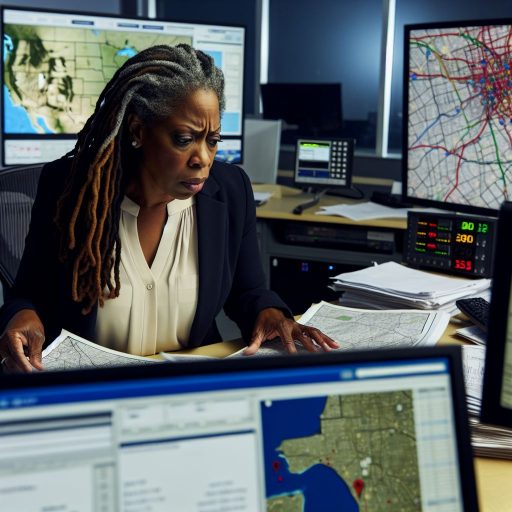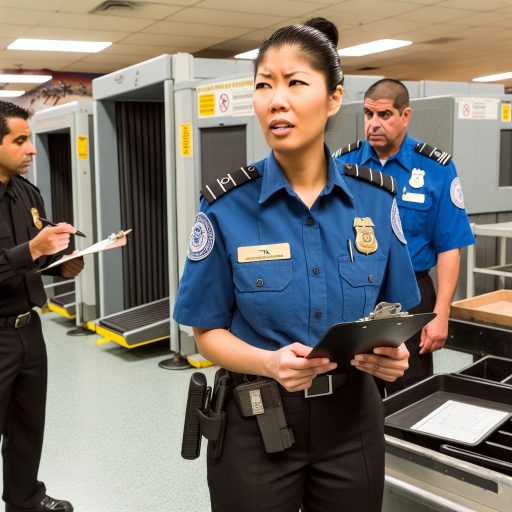Introduction:
The Secret Service is a prestigious law enforcement agency tasked with protecting high-ranking officials.
Joining the Secret Service requires high levels of security clearance, stringent requirements, and extensive training.
There are various career paths and promotion opportunities available within the agency.
Entry-Level Positions:
The Secret Service offers various entry-level positions such as Special Agent, Uniformed Division Officer, and Administrative Professional.
Qualifications for these positions include a bachelor’s degree, relevant work experience, and passing a thorough background investigation.
Special Agents are responsible for investigating financial crimes, protecting high-level officials, and conducting criminal investigations.
Uniformed Division Officers protect the White House, foreign embassies, and other key locations in Washington D.C.
Administrative Professionals provide support in areas such as human resources, budgeting, and information technology.
It is essential for individuals in these roles to gain valuable experience and develop critical skills that will aid in their career progression within the Secret Service.
Each position offers unique opportunities for growth and advancement within the agency.
Career Development Paths:
Agents in the Secret Service have several career development paths to choose from.
Entry-level positions typically include roles such as special agents or uniformed division officers.
Special agents focus on investigating financial crimes, counterfeiting, and protecting high-profile individuals.
Uniformed division officers are responsible for safeguarding the White House and foreign diplomatic missions.
As agents gain experience and expertise, they can progress to more specialized roles within the agency.
These specialized roles may include positions in protective intelligence, cyber investigations, or training.
Promotion within the Secret Service involves a combination of performance evaluations, training, and experience.
Agents who demonstrate leadership skills, exceptional performance, and dedication to the agency are often considered for promotions.
Promotions can lead agents to higher ranks such as supervisory special agent, assistant special agent in charge, and special agent in charge.
Advancement opportunities within the Secret Service are competitive, but achievable with hard work and dedication.
Transform Your Career Today
Unlock a personalized career strategy that drives real results. Get tailored advice and a roadmap designed just for you.
Start NowProgressing Through the Ranks:
Agents can progress through the ranks by excelling in their current roles and seeking out opportunities for growth.
Entry-level agents can gain valuable experience by participating in various assignments and training programs.
By demonstrating strong investigative skills, attention to detail, and professionalism, agents can stand out among their peers.
Agents who show potential for leadership are often identified early on in their careers and given opportunities to develop their skills.
Special agents can seek opportunities for advancement by taking on additional responsibilities, such as supervising junior agents.
Agents may also pursue further education, training, or certifications to enhance their knowledge and skills in specific areas.
Lateral movement within the agency allows agents to explore different career paths and gain diverse experiences.
Agents can transition to different divisions or units within the Secret Service to broaden their expertise and expand their professional networks.
Professional growth within the agency is supported through mentorship programs, leadership development courses, and career counseling services.
By actively seeking out opportunities for advancement and continuously improving their skills, agents can progress through the ranks of the Secret Service.
Explore Further: Cyber Threats Security Consultants Must Know
Specialized Units and Opportunities:
When pursuing a career in the Secret Service, agents have the opportunity to work in specialized units that require unique skills and expertise.
These units play a crucial role in protecting the President, Vice President, and other dignitaries.
- Counter Assault Team: This unit is trained to respond to and neutralize threats in close proximity to protectees.
- Electronic Crimes Task Force: Agents in this unit investigate and combat cybercrimes that pose a threat to national security.
- Counter Surveillance Unit: This unit specializes in detecting and countering surveillance by hostile entities.
Each of these specialized units within the Secret Service requires agents to possess specific skills and expertise.
Unique Skills and Expertise:
- Sharpshooting and tactical skills are essential for agents in the Counter Assault Team.
- Agents in the Electronic Crimes Task Force must have a deep understanding of cybersecurity and digital forensics.
- Members of the Counter Surveillance Unit need to be highly observant and skilled in detecting suspicious behavior.
Transitioning into these specialized units involves a rigorous selection process and additional training.
Applying for and Transitioning into Specialized Roles:
- Agents interested in joining a specialized unit must demonstrate exceptional performance in their current role.
- They can express their interest to their supervisors and seek recommendations for applying to specialized units.
- Selected agents will undergo specialized training to acquire the necessary skills for their new role.
Transitioning into a specialized unit within the Secret Service can open up new avenues for career growth and advancement.
It allows agents to take on more challenging roles and contribute to the agency’s mission in a unique and impactful way.
Find Out More: Correctional Officer Salary and Benefits
Leadership and Management Roles:
Within the Secret Service, there are various leadership and management roles that individuals can aspire to achieve.
These positions come with increased responsibilities and require strong leadership skills.
Transform Your Career Today
Unlock a personalized career strategy that drives real results. Get tailored advice and a roadmap designed just for you.
Start NowLet’s take a closer look at some of the key leadership roles within the Secret Service:
Supervisory Special Agent:
- Supervisory Special Agents are responsible for overseeing a team of Special Agents and support staff.
- They play a crucial role in coordinating investigative activities, managing resources, and ensuring the security of high-profile individuals.
- To qualify for this position, candidates must have extensive experience as a Special Agent and demonstrate strong leadership abilities.
- Supervisory Special Agents must possess excellent communication skills, decision-making abilities, and the ability to lead and motivate a team.
- This leadership role offers individuals the opportunity to take on increased responsibility and make a significant impact within the organization.
Field Office Director:
- Field Office Directors are responsible for overseeing the operations of a Secret Service field office within a specific region.
- They are tasked with managing personnel, allocating resources, and overseeing the coordination of protective and investigative activities.
- Candidates for this position must have a proven track record of leadership and management in the Secret Service.
- Field Office Directors must have a deep understanding of the organization’s mission and be able to effectively implement strategic initiatives.
- This leadership role provides individuals with the opportunity to influence and drive the success of operations on a regional level.
Special Agent in Charge:
- Special Agents in Charge (SACs) are senior executives within the Secret Service who oversee the operations of a specific division or function.
- They are responsible for setting priorities, implementing policies, and providing guidance to subordinate staff members.
- Individuals aspiring to become SACs must have a proven record of leadership, strategic thinking, and decision-making skills.
- SACs must possess strong communication skills and the ability to collaborate effectively with other law enforcement agencies.
- This leadership position offers individuals the opportunity to lead and shape the direction of critical operations within the Secret Service.
Leadership roles within the Secret Service require individuals to demonstrate strong leadership, decision-making, and communication skills.
These positions provide opportunities for career advancement and professional development, allowing individuals to take on increased responsibilities and make a significant impact within the organization.
By excelling in these leadership roles, individuals can contribute to the success and effectiveness of the Secret Service’s mission.
Learn More: K-9 Officer Career FAQs: Answering Common Questions
Training and Professional Development:
- Secret Service offers rigorous training programs for its agents.
- Ongoing training is essential for agents to stay current.
- Certifications and continuing education are encouraged for career advancement.
- The agency invests in the growth and development of its employees.
- Professional development opportunities are provided to enhance skills and expertise.
Secret Service agents undergo extensive training to prepare them for the challenges they may face in their roles.
This training is not only essential for their own safety but also critical for fulfilling the agency’s mission of protecting the nation’s leaders and enforcing the law.
Agents are required to complete a comprehensive training program that covers a wide range of topics, including firearms proficiency, defensive tactics, emergency response procedures, and investigative techniques.
They must demonstrate proficiency in these areas to ensure they can effectively carry out their duties in various situations.
Furthermore, ongoing training is essential for agents to stay current with the latest developments in their field.
This includes staying abreast of new technologies, methodologies, and best practices that can enhance their effectiveness in protecting their assigned targets.
Certifications and continuing education opportunities are also encouraged for agents who wish to advance their careers within the Secret Service.
By obtaining additional certifications or pursuing further education, agents can broaden their skill set and increase their chances of promotion to higher ranks within the agency.
The Secret Service is committed to investing in the growth and development of its employees.
This includes providing resources for professional development and career advancement opportunities that can help agents reach their full potential and achieve their career goals.
Professional development opportunities, such as leadership training, management courses, and specialized skill development programs, are offered to agents to enhance their skills and expertise.
These programs help agents become more effective leaders, decision-makers, and problem-solvers in their roles.
The Secret Service places a strong emphasis on training and professional development to ensure its agents are well-prepared to carry out their duties effectively and protect the nation’s leaders.
By investing in the growth and development of its employees, the agency is able to maintain a highly skilled and dedicated workforce that is capable of meeting the challenges of the modern security environment.
Transform Your Career Today
Unlock a personalized career strategy that drives real results. Get tailored advice and a roadmap designed just for you.
Start NowGain More Insights: Ethical Dilemmas in Parole Work

Mentorship and Networking:
Mentorship and networking play a crucial role in advancing one’s career within the Secret Service.
Mentors provide guidance, support, and valuable insights that help agents navigate their career paths effectively.
Agents can seek out mentors within the Secret Service or other law enforcement agencies through formal mentorship programs, networking events, or by approaching senior agents they admire.
Building professional relationships is essential for career growth.
Agents should attend training sessions, conferences, and other networking events to connect with colleagues and leaders in the field.
- Be proactive in reaching out to potential mentors or contacts.
- Maintain regular communication and follow up with networking connections.
- Offer assistance or support to others in your network to establish mutually beneficial relationships.
- Attend industry events and participate in online forums or groups to expand your professional network.
- Be genuine and authentic in your interactions with others, showing interest in their work and seeking advice or feedback when appropriate.
- Utilize social media platforms like LinkedIn to connect with professionals in your field and stay updated on industry trends and opportunities.
- Seek out opportunities for mentorship or coaching within your organization to enhance your skills and knowledge.
- Keep an open mind and be receptive to feedback and guidance from mentors or networking connections.
Performance Evaluation and Promotion Criteria:
Agents are evaluated based on competencies, achievements, and contributions.
Factors like performance reviews, training evaluations, and leadership potential impact promotions.
Performance evaluation involves assessing agents’ skills, knowledge, and effectiveness.
The Secret Service has a structured performance evaluation process in place to assess agents based on their competencies, achievements, and contributions to the agency.
This evaluation is crucial in determining an agent’s eligibility for promotion within the organization.
Agents are assessed on a regular basis to ensure they meet the agency’s standards and expectations.
The performance evaluation process considers various factors, such as the agent’s skills, knowledge, experience, and overall effectiveness in carrying out their duties.
This evaluation helps identify agents who have excelled in their roles and are ready for advancement within the Secret Service.
One of the key criteria for promotion in the Secret Service is an agent’s performance reviews.
These reviews provide insight into how well an agent is performing their job responsibilities and fulfilling the agency’s mission.
Positive performance reviews demonstrate an agent’s dedication, professionalism, and ability to meet the agency’s goals effectively.
In addition to performance reviews, training evaluations play a significant role in determining an agent’s readiness for promotion.
Agents who continuously seek further training and development opportunities demonstrate a commitment to enhancing their skills and expertise, making them strong candidates for advancement within the organization.
Transform Your Career Today
Unlock a personalized career strategy that drives real results. Get tailored advice and a roadmap designed just for you.
Start NowAnother crucial factor in promotion decisions is an agent’s leadership potential.
The Secret Service values agents who show leadership qualities, such as excellent communication skills, decision-making abilities, and the capacity to inspire and motivate others.
Agents who demonstrate strong leadership potential are often considered for higher-level positions within the agency.
The Secret Service’s performance evaluation process and promotion criteria are designed to identify agents who have excelled in their roles and are ready for advancement within the organization.
By assessing agents based on their competencies, achievements, and contributions, as well as factors like performance reviews, training evaluations, and leadership potential, the agency can ensure a strong and capable workforce that is prepared to meet the challenges of protecting the nation’s leaders and upholding national security.
Career Path and Promotion Opportunities in Secret Service
Joining the Secret Service offers a unique career path that involves various roles and responsibilities.
Entry-level positions, such as Special Agent, Uniformed Division Officer, or Intelligence Analyst, provide a solid foundation.
As agents gain experience and expertise, they can progress to supervisory roles, leading teams and operations.
Specialized units, such as the Counter Assault Team or Counter Surveillance Unit, offer exciting career paths for agents.
Promotion opportunities within the Secret Service are based on performance, dedication, and merit.
Agents who demonstrate leadership, problem-solving skills, and strategic thinking are often considered for promotions.
High-performing individuals can advance to higher ranks, such as Assistant Director or Special Agent in Charge.
Senior leadership roles, including Deputy Director and Director, are attainable for agents with exceptional skills and experience.
The Secret Service provides a range of career paths and promotion opportunities for its employees.
By rewarding merit, dedication, and performance, the agency fosters a culture of excellence and advancement.
Aspiring Secret Service agents are encouraged to pursue their career goals within the agency.
Opportunities for growth and advancement abound, enabling individuals to reach their full potential in service.




